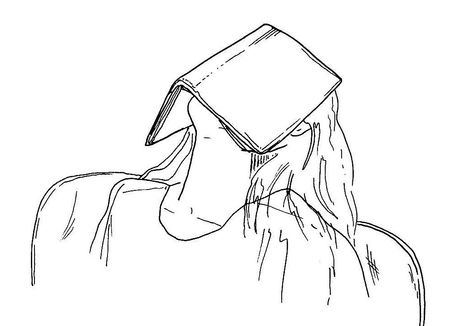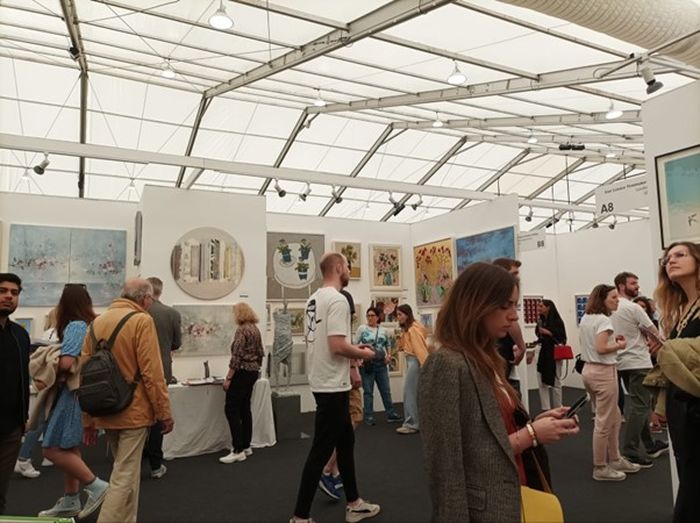Losing touch with Young Adult fiction
Despite reading a lot of young adult fiction in her adolescence, Isabel Dempsey explains why she became detached from the genre

Studying English at Cambridge, you would think I spent my teenage years reading a consistent spiel of academically approved classics or some great contemporary literature. Although I would dip into the occasional critically acclaimed novel, for the most part, I was trapped in the world of young adult books. I’m talking Shadowhunters, Six of Crows, even A Court of Thorns and Roses – embarrassing, I know. I was deep inside the internet fandoms, a devout follower of “BookTube” (aka YouTubers who talk about books) and spending the limited amount of money I had in my personal place of worship: Waterstones.
But in recent years, a distance has opened up between me and the young adult (or YA) genre. Between Middle English translation and Shakespeare portfolios, there’s no time to read the next big fantasy saga storming the internet. At some point around age sixteen, I went down a rabbit hole of Regency Era literature and the YA world was gradually left behind. I’d still occasionally return to my favourite series, buying a new book if it was written by one of my favourite authors or I couldn’t escape its online presence. But nowadays there’s probably only one or two series that could make me drop everything to devour them like I used to.
"The YA market has become inundated with badly-written books that found their origins on Wattpad"
It’s sad to think I’ve lost my connection to this world. I don’t know all the books on Waterstones’ teen fiction shelves or the things being recommended on BookTok (BookTube’s trendier TikTok sibling). I don’t understand all the references, get all the jokes, or recognise all the fanarts. I should probably be thankful I’ve grown up and moved on from this cringe-inducing era of my life, but I can’t help mourning it just a little bit. It was a fun time, an innocent time. I didn’t understand why anyone would want to read anything else. These books were thrilling, impossible to put down, and full of adorable romantic moments that made my adolescent heart squeal in delight. I’m not sure I can exactly say the same for The Canterbury Tales – sorry Chaucer.
But that’s not the only reason I’ve become detached. In recent years the YA market has become saturated, inundated with badly-written, self-published books that found their origins on Wattpad. Yes, some of these self-published books – like Foxhole Court – are actually good, but the overall quality of the YA world is decreasing. Although nostalgia may just be convincing me that my past obsessions are more well-written than they actually are, I think there’s more to it than that. When sex in YA books was traditionally PG-13, providing a gentle introduction to the world of adolescent lusts, the erotica has become worryingly more rampant. There is a strange obsession with “spicy” books on TikTok, and the line between porn and literature is becoming increasingly blurred. Of course, people are allowed to explore their sexuality however they please, but maybe books marketed at impressionable teenagers aren’t the place to do it.
"I’ve started to feel alienated from the wholesome world I used to cherish"
But this is the issue – who is at fault, the writers or the marketers? It shouldn’t matter how explicit a writer’s content is if it’s being enjoyed by a reader of an appropriate age, aware of the book’s racier nature. There has been a recent attempt to establish ‘new adult’ as a recognised genre in the industry, targeted toward people in their late teens and early 20s. It has all the fun of YA with a bit more graphic detail thrown in. And yet, it isn’t being properly recognised. Lots of these books are being mindlessly lumped into the teen section, particularly when written by authors previously known for writing YA, like Sarah J Maas and Colleen Hoover. New Adult works like The Love Hypothesis are publicised by YA social media influencers and their cover designs look just the same as your average cheesy teen contemporary. I guess they are “teen fiction”, but this label covers a rather wider category than it seems to realise. Thirteen-year-olds and nineteen-year-olds are worlds apart in terms of maturity. Sometimes book stores try to counteract the problem of these more mature books with other solutions. A Court of Thorns and Roses now has a ‘not suitable for younger readers’ sticker on it. But what on earth is a younger reader? Try telling a thirteen-year-old, branching out of the 9-12 section for the first time, that they’re a ‘younger reader’ and they’ll laugh in your face.
I’ve started to feel alienated from the wholesome world I used to cherish. I feel like I can no longer defend the genre because the genuinely great works within it have become overshadowed by a horrific spiel of fairy smut. The figures of fantasy associated with YA (think your werewolves, vampires, and fae) are perversely turned into sexual objects. Publishers and bookstores, therefore, need to work with writers and influencers to more carefully market and sell these books to an appropriate audience.
Although my relationship with YA has now died a rather depressing death, I’m still thankful for my time with it. Yes I’ve grown up and the genre has (worryingly) mutated, but I still believe these books helped to shape my teenage years and the person I am today for the better. I only hope that the genre can be revived, so that other teenagers are able to safely explore the adolescent world of literature, without its more inappropriate side.
 News / Hundreds of Cambridge academics demand vote on fate of vet course20 February 2026
News / Hundreds of Cambridge academics demand vote on fate of vet course20 February 2026 News / Judge Business School advisor resigns over Epstein and Andrew links18 February 2026
News / Judge Business School advisor resigns over Epstein and Andrew links18 February 2026 News / University Council rescinds University Centre membership20 February 2026
News / University Council rescinds University Centre membership20 February 2026 News / Petition demands University reverse decision on vegan menu20 February 2026
News / Petition demands University reverse decision on vegan menu20 February 2026 News / Caius students fail to pass Pride flag proposal20 February 2026
News / Caius students fail to pass Pride flag proposal20 February 2026










